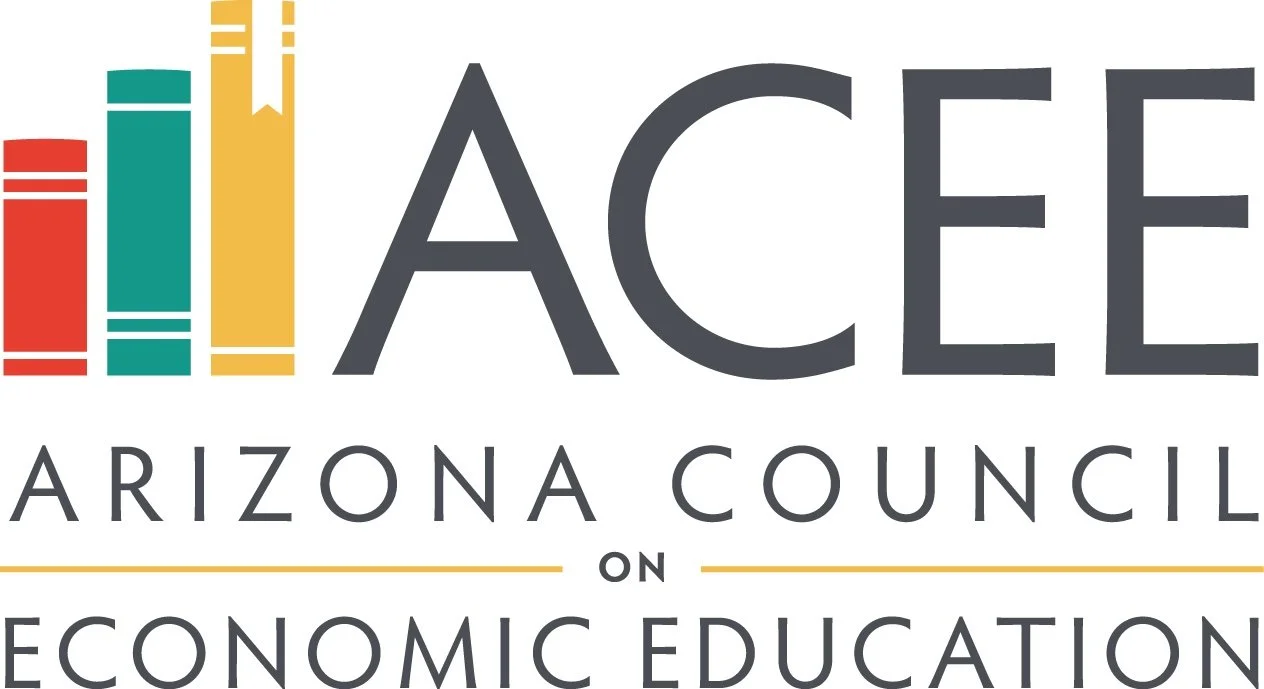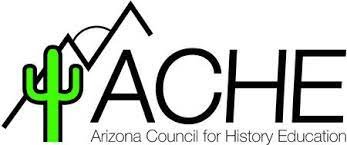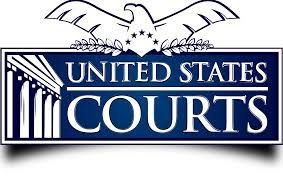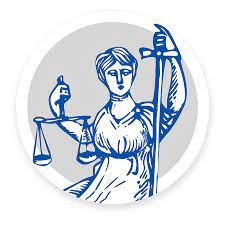Arizona History and Social Science Standards (Adopted 10.22.2018)
The Arizona History and Social Science Standards are premised upon a rigorous and relevant K-12 social studies program within each district and school in the state. Engaging students in the pursuit of active, informed citizenship will require a broad range of understandings and skills including:
Think analytically by
Posing and framing questions
Gathering a variety of evidence
Recognizing continuity and detecting change over time
Utilizing chronology to examine cause and effect relationships
Drawing and combining reasonable inferences from a variety of sources to build an understanding of complex questions
Read widely and critically by
Examining, interpreting, and contextualizing primary sources focusing on author, purpose, and audience of each source
Identifying and comparing historical, geographic, economic, and political science interpretations from a wide variety of secondary sources
Utilizing broader understanding to discern subtext in primary and secondary sources
Communicate cogently and in a compelling manner by
Developing and defending evidenced-based arguments
Utilizing multiple perspectives for comprehensive explanations
Practicing and cultivating a wide variety of diverse types of writing
Engaging in constructive conversations around history and social science topics
The Arizona History and Social Science Standards, through the emphasis on content knowledge, disciplinary skills, and process and the integration of inquiry elements will prepare Arizona students to engage actively in civic life and meet the needs and challenges of the 21st century.
Curriculum Resources
The following curriculum resources are available at no cost for K12 educators:
The Arizona’s Educating for American Democracy Project was formed in partnership with the Center for Political Thought and Leadership at Arizona State University with funding from the Governor’s Emergency Education Relief Fund. This work is done by Arizona teachers from all around the state in order to elevate civic education through Educating For American Democracy (EAD). The EAD Roadmap is an inquiry-based content framework for excellence in civic and history education for all learners that is organized by major themes and questions, supported by key concepts.
Check out the podcast, blog, and resources on the Educating for the American Democracy site.
The Arizona Council on Economic Education (ACEE) is a 501(C)3 nonprofit organization dedicated to entrepreneurship, economic and financial literacy, and workforce development in Arizona. ACEE is the only statewide organization in Arizona which: has a strong, affiliated academic base with universities and community colleges; partners with the Arizona Department of Education and the Federal Reserve Bank; prepares teachers in teaching and students in learning personal finance, economics and entrepreneurship; and distributes proven economic education resources to schools free of charge.
The Bill of Rights Institute (BRI) is a civic education organization with a network of over 68,000 history and civics educators, thousands of classroom-ready history and civics resources and annual student and teacher programming. For over 20 years, BRI has been designing classroom-ready, constitutional principles-based lessons, and supporting educators with engaging events. Explore the whole collection of educator resources, including hundreds of YouTube videos and current events lessons for middle and high school classrooms. All of its resources are designed to drive students to the United States Constitution and Founding documents as the foundation of their analysis of American history and current events.
The State Bar of Arizona created the Arizona Foundation for Legal Services & Education as a separate 501(c) 3 organization in 1978, charging it with the mission of promoting access to justice for all Arizonans. The Foundation strives to fulfill this mission by preparing Arizona youth for civic responsibility and providing access to justice for Arizonans most in need. Through the provision of technical and financial assistance to probation & resource officers, teachers & administrators, private attorneys & judges, and legal service attorneys & advocates, the Foundation works to level the playing field, so that all in Arizona have knowledge and access to the justice systems. To find out more about the programs of the Arizona Foundation for Legal Services & Education, visit the Law Related Education, Legal Services or IOLTA areas of this website.
Center for the Future of Arizona’s School Participatory Budgeting (SPB) program is an innovative approach to equipping, engaging, and empowering our rising generation to be active and informed participants in civic life. SPB is an innovative civic learning tool designed to improve student agency, collaboration and critical-thinking skills and prepare young people to be active, informed, and engaged in their school community. Students “learn democracy by doing” through a process of collecting ideas for school improvement, developing idea project proposals, and voting to fund the improvement projects that build stronger school communities.
The school model stems from the widely adopted municipal Participatory Budgeting (PB) model - a democratic process in which community members decide how to spend a portion of the public budget. Center for the Future of Arizona provides training and support to our partners to implement a year-long process, led by students working alongside their teachers and the community. Students work together through a process of curating ideas, developing proposals, and participating in a campus-wide vote that educates students on real electoral processes.
The Arizona Geographic Alliance (AzGA) was founded in 1992 as part of a national network of state geography alliances sponsored by the National Geographic Society and is an affiliate of the Arizona Council for the Social Studies. The mission of the AzGA is to promote geography education and be advocates for geographic literacy. Since 2003, AzGA has conducted over 520 workshops that have impacted approximately 20,000 teachers who are teaching more than 800,000 students. These workshops have been in schools and school districts and state and national-level settings. Each year AzGA conducts an annual geography conference (GeoConference). AzGA also hosts various daylong workshops that focus on a region of the world or a teaching strategy, such as GeoLiteracy (integration of geography and reading and writing skills), GeoMath (integration of geography and math skills), and GeoLiteracy for Diverse Learners (ELLs). AzGA impacts hundreds of preservice teachers through education methods classes, and membership totals over 4300 educators.
Arizona Council for History Education (ACHE)’s mission is to shape, support, advance, and maintain excellence in history education in Arizona. We strive to engage in developing meaningful partnerships and collaborations in order to promote an inclusive network to support history education.
The Citizens Clean Elections Act, passed by voters in 1998, is administered by a five member, non-partisan Commission. The Act established a system for voter education, clean funding for candidate campaigns and campaign finance enforcement. The purpose of the Act is to restore citizen participation and confidence in our political system, improve the integrity of Arizona State government and promote freedom of speech under the U.S. and Arizona Constitutions.
Citizens Clean Elections Commission (CCEC), in partnership with expert curriculum writers, puts forth the Civics Classroom Curriculum as part of Clean Elections youth voter education and outreach initiative. The effort aims to educate the next generation of voters about every aspect of the political process and to inspire participation in voting. The curriculum is one prong of the youth voter initiative, which encourages young people to activate their political power.
U.S. Courts provides original, courtroom-ready, and classroom-ready resources that are the centerpiece of the federal courts’ national and local educational outreach to high school students and their teachers. They simplify complex concepts and motivate participants to serve on juries willingly when called.
The Standford History Education Group (SHEG) provides hundreds of free social studies curriculum materials and opportunities for ongoing professional development. Explore Reading Like a Historian lessons, Beyond the Bubble history assessments, and Civic Online Reasoning activities, all available for free.
The National Archives Educator Resources provides access to primary source documents without having to leave your school or home. Not only does the National Archives promote resources that include primary sources related to pivotal moments in American history and government, including images, historical context, and transcriptions, they also provide free professional development courses and institutes for K12 teachers!
The Civics Renewal Network is a consortium of nonpartisan, nonprofit organizations committed to strengthening civic life in the U.S. by increasing the quality of civics education in our nation’s schools and by improving accessibility to high-quality, no-cost learning materials. On the Civics Renewal Network site, teachers can find the best resources of these organizations, searchable by subject, grade, resource type, standards, and teaching strategy.
Oyez (pronounced OH-yay)—a free law project from Cornell’s Legal Information Institute (LII), Justia, and Chicago-Kent College of Law—is a multimedia archive devoted to making the Supreme Court of the United States accessible to everyone. It is the most complete and authoritative source for all of the Court’s audio since the installation of a recording system in October 1955. Oyez offers transcript-synchronized and searchable audio, plain-English case summaries, illustrated decision information, and full-text Supreme Court opinions (through Justia). Oyez also provides detailed information on every justice throughout the Court’s history and offers a panoramic tour of the Supreme Court building, including the chambers of several justices.
Next Gen Personal Finance (NGPF)’s curriculum covers 12 units, including Investing, Taxes, Saving, Behavioral Economics, and Paying for College. Our turnkey courses include 9-week, Semester and Full-Year courses for both high school and middle school students. NGPF resources use hands-on, real-world applications that build student financial capability. Best of all, the curriculum is provided at no-cost.
Teaching American History (TAH) provides a variety of resources, courses, and programs to help classroom teachers improve their knowledge of American history, government, and civics. Everything Teaching American History does revolves around discussion of primary documents. TAH’s goal is to help teachers acquire the content knowledge, resources and confidence they need to make each American history, government or civics class in America its best.
The Center for Civic Education helps students develop (1) an increased understanding of the institutions of constitutional democracy and the fundamental principles and values upon which they are founded, (2) the skills necessary to participate as competent and responsible citizens, and (3) the willingness to use democratic procedures for making decisions and managing conflict. Ultimately, the Center strives to develop an enlightened citizenry by working to increase understanding of the principles, values, institutions, and history of constitutional democracy among teachers, students, and the general public.
To fulfill this mission, the Center develops high-quality curricular materials, provides exceptional professional development for teachers, and advocates for stronger civic education in the United States and emerging democracies.
Emerging America provides professional development and online resources to nurture critical thinking about the American experience and its global context. Their resources model successful strategies to access and analyze primary sources, investigate vital local stories, and improve student reading and writing about rich texts, images, maps, recordings, multimedia, and more.
The Council on Foreign Relations Education features award-winning classroom products designed to introduce students in middle school all the way through graduate school to the fundamentals of foreign policy and international relations in order to make sense of the world around them.
Retro Report in the Classroom is a non-profit journalism organization that aims to foster engagement and critical thinking skills with over 250 short videos that connect history to today. The videos are paired with lesson plans and are perfect for many classroom subjects, particularly U.S. History, Civics & Government, Media Literacy, World History, Psychology, and Environmental Studies. All of the videos, lessons, and student activities are completely FREE.
iCivics champions equitable, non-partisan civic education by providing high-quality and engaging civics resources to teachers and students across our nation, so that the practice of democracy is learned by each new generation. Resources include free lesson plans, videos, DBQs, and games meant to inspire life-long civic engagement.
The Pulitzer Center's K–12 education programs and resources cultivate a more curious, informed, empathetic, and engaged public by connecting teachers and students with underreported global news stories and the journalists who cover them.






















